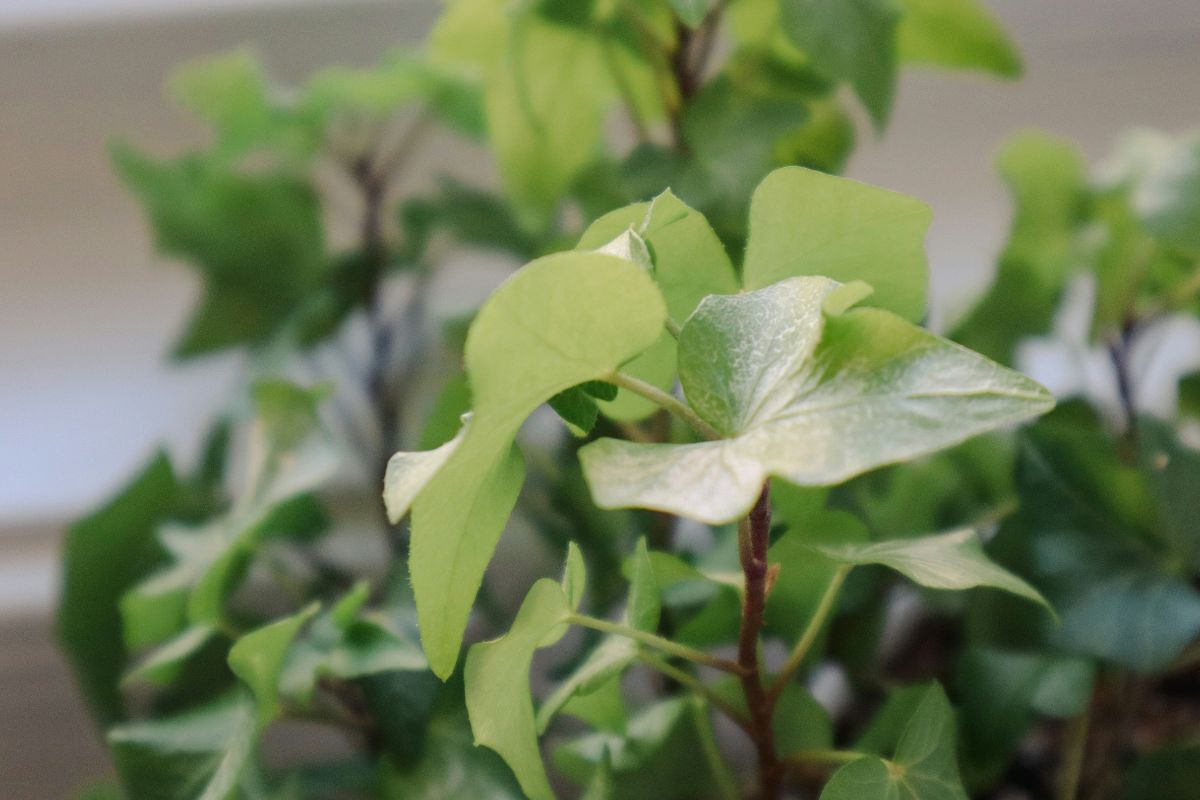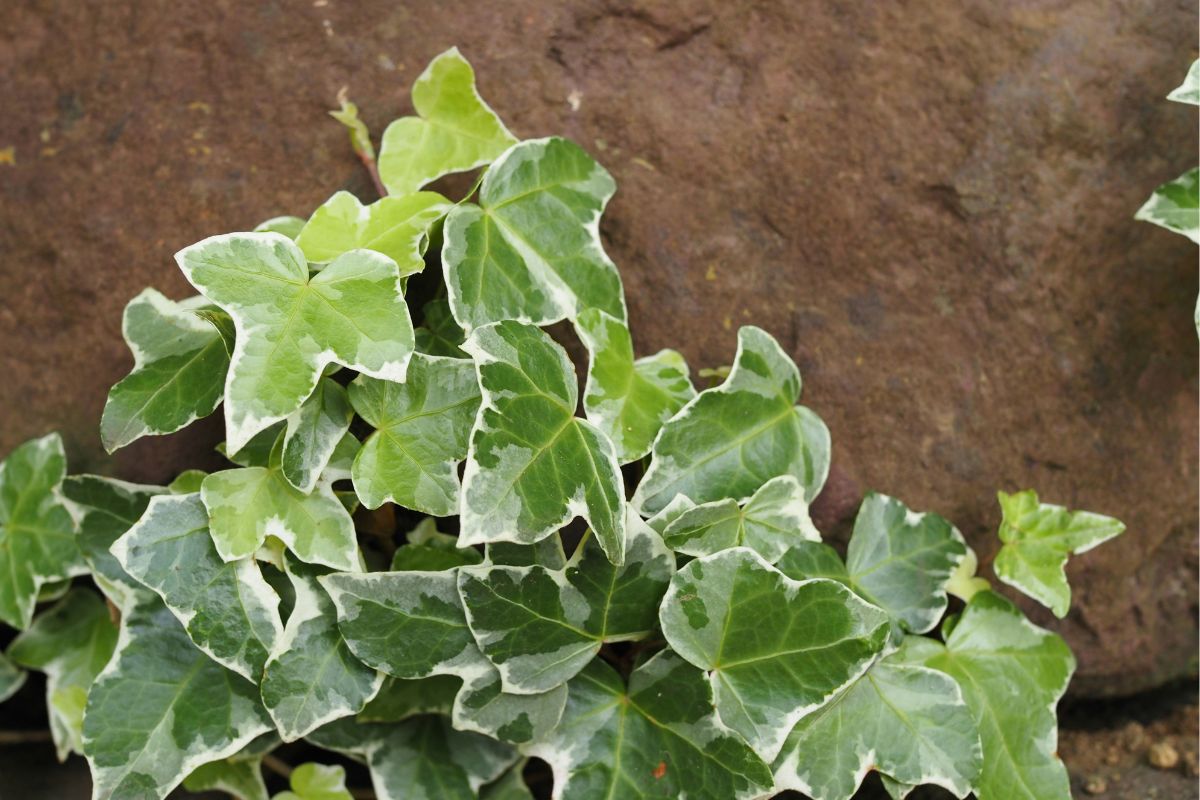English Ivy A Timeless Beauty with Health Benefits and Care Tips
English Ivy (Hedera helix) is a classic and versatile plant known for its elegant trailing vines and ability to climb walls and trellises. Native to Europe and Western Asia, this evergreen plant has been cherished for centuries for its beauty and symbolism. Whether grown indoors or outdoors, English Ivy offers a range of benefits, from air purification to enhancing your space’s aesthetics. This article dives into the benefits of English Ivy and provides a comprehensive care guide to keep it thriving.
Benefits of English Ivy

1. Air Purification
English Ivy is celebrated for its air-purifying qualities. NASA’s Clean Air Study found it to be one of the most effective plants for removing airborne toxins such as benzene, formaldehyde, and carbon monoxide. It helps create a healthier indoor environment by reducing pollutants and increasing oxygen levels.
Why it works:
Its broad leaves absorb harmful chemicals and filter the air.
It reduces allergens like mold spores and dust in enclosed spaces.
Tip: Place English Ivy in rooms with poor ventilation to improve air quality.
2. Allergy Relief
English Ivy has been found to reduce mold spores in the air, which can be beneficial for individuals with allergies or respiratory issues. Its natural ability to absorb airborne allergens makes it an ideal choice for bedrooms and living rooms.
How it helps:
It traps dust and allergens on its leaves, preventing them from circulating in the air.
Reduces indoor mold levels, particularly in damp areas.
Tip: Regularly wipe the leaves to remove accumulated dust and allergens.
3. Aesthetic Appeal
With its cascading vines and lush green leaves, English Ivy adds timeless elegance to any space. It works well as a hanging plant, ground cover, or climbing feature on walls and trellises, making it a versatile choice for both indoor and outdoor settings.
Design Ideas:
Use it as a hanging plant for a dramatic effect in living rooms or offices.
Train its vines to climb a trellis or create a natural wall covering in your garden.
Tip: Pair English Ivy with contrasting plants to create a visually appealing arrangement.
4. Boosts Mood and Reduces Stress
Like many other houseplants, English Ivy can positively impact mental well-being. Its presence helps create a calming and relaxing atmosphere, which can reduce stress and enhance focus.
Why it works:
Its vibrant greenery connects you to nature, promoting a sense of tranquility.
Plant care promotes mindfulness and helps alleviate anxiety.
Tip: Place English Ivy in areas where you relax or work, such as your bedroom, study, or living room.
5. Erosion Control
When grown outdoors, English Ivy is an effective ground cover that prevents soil erosion. Its dense growth helps stabilize slopes and protect soil from wind and water damage, making it a valuable addition to gardens and landscapes.
How it helps:
Its roots hold soil in place, reducing runoff during heavy rains.
It forms a thick mat of foliage that shields the soil from direct sunlight and erosion.
Tip: Use English Ivy to cover bare patches in your garden or stabilize slopes.

How to Care for English Ivy
English Ivy is relatively low-maintenance, but proper care is essential to keep it healthy and thriving. Here’s a detailed care guide:
1. Light Requirements
English Ivy flourishes in bright, indirect light but can also adapt to low-light environments. Outdoors, it prefers partial to full shade, while indoors, it grows well near a window with filtered light.
Care Tips:
Steer clear of direct sunlight, as it may scorch the leaves
Turn the plant periodically to promote balanced growth.
2. Watering
English Ivy prefers evenly moist soil but is sensitive to overwatering. Proper watering is key to preventing root rot and maintaining healthy growth.
Watering Tips:
Water the plant when the top inch of soil becomes dry to the touch.
Select a pot with drainage holes to avoid waterlogging.
Mist the leaves occasionally to maintain humidity.
3. Soil
English Ivy thrives in well-draining, fertile soil. A standard potting mix is sufficient for indoor growth, while outdoor plants benefit from soil enriched with organic matter.
Soil Tips:
Use a mix with good aeration and drainage properties.
Add compost or organic fertilizer for outdoor plants to promote healthy growth.
4. Temperature and Humidity
English Ivy thrives in cool to moderate temperatures and enjoys high humidity. It thrives in temperatures between 50°F and 75°F (10°C to 24°C) and benefits from occasional misting in dry environments.
Care Tips:
Avoid placing the plant near heaters, air conditioners, or drafts.
Use a humidifier or pebble tray to increase humidity during winter.
5. Pruning and Training
Regular pruning helps control the growth of English Ivy and keeps it looking neat and healthy. Training its vines can also enhance its decorative appeal.
Pruning Tips:
Prune overgrown or leggy stems to promote fuller, bushier growth.
Promptly remove yellow or damaged leaves to support the plant’s health.
Training Tips:
Use hooks, trellises, or wireframes to guide its vines in the desired direction.
Pinch off growing tips to encourage lateral branching.
6. Fertilizing
English Ivy doesn’t require heavy fertilization, but occasional feeding during the growing season can promote vibrant growth.
Fertilizing Tips:
Apply a balanced liquid fertilizer every 4-6 weeks during the spring and summer months.
Refrain from over-fertilizing, as it may lead to salt accumulation in the soil.
Common Problems and Solutions
Yellow Leaves: This is usually caused by overwatering or insufficient drainage. Let the soil dry out between waterings and make sure the pot has proper drainage.
Pests: English Ivy may be prone to infestations by spider mites, aphids, and scale insects. Treat infestations with insecticidal soap or neem oil.
Leggy Growth: This happens when the plant lacks sufficient light. Relocate it to a brighter spot with indirect sunlight.
Brown Tips: Brown tips may indicate low humidity or inconsistent watering. Increase humidity and ensure the plant is watered regularly but not excessively.
Conclusion
English Ivy is more than just a decorative plant. Its air-purifying abilities, aesthetic versatility, and low-maintenance nature make it a valuable addition to any home or garden. Whether you’re looking to improve indoor air quality, add a touch of elegance to your decor, or protect your garden from erosion, English Ivy is an excellent choice. By following the care tips outlined above, you can enjoy the beauty and benefits of English Ivy for years to come.

